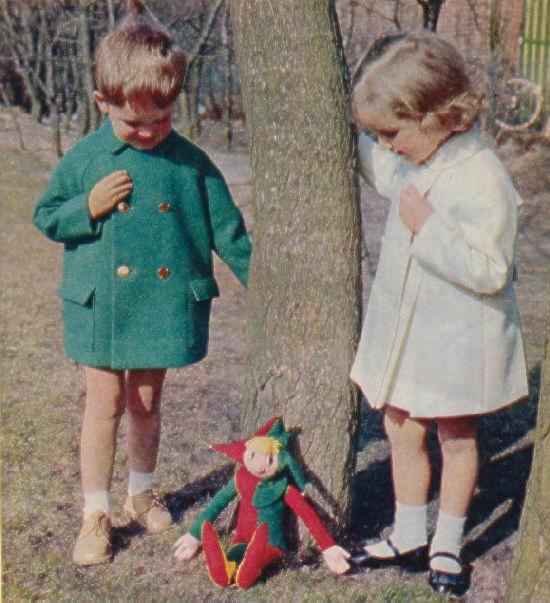
Figure 1.--These two French children were pictured wearing manteaus baby in the September 18-24, 1962 issue of "Libelleb". |

|
We see younger boys wearing short coats in gthe 19th century. Beginning about the 1940s we begin to note classic double-breasted coats for little boys, referred to in French as "manteau baby". They coats were also very popular in America and England. We are not sure where this style first appeared, but we begin noticing it in France in the late 1940s, but it may have originated even earlier. It is a style generaly associated with wealthy children. Prince Charles and other wealthy English children wore them. As did wealthy American children, including John F. Kennedy, Jr. They were worn by both boys and girls. I'm not sure if there were differences in the styles worn by boys and girls. There were a variety of stylistic differences, but I do not know if these were associated with gender. Stylistic differences included such variations as the cuts/vents on the back of the coat. Some had velvet detailing on the lapels.
We see younger boys wearing short coats in gthe 19th century. We do not know if they had a specidic name. A good exanole is a coat worn by French boy: Georges Wattinne Desurmont about 1872-73. Even at this early point we notice the double-breasted styling for the coats. Beginning about the 1940s we begin to note more of the classic double-breasted coats for little boys, referred to in French as "manteau baby". The style was relatively common through the 1960s and even into the 1970s. Since the 1980s this style has become less common. It has, however, not disappeared in France. It continue to be available in sizes for younger boys at the higher-end Paris deoartment store.
The classically styled coats were also very popular in America and England.
We are not sure where this style first appeared, but we begin noticing it in France in the late 1940s, but it may have originated even earlier.
This classic style is a style generaly associated with wealthy children. Prince Charles and other wealthy English children wore them. As did wealthy American children, including John F. Kennedy, Jr.
Stylistic differences included such variations as the cuts/vents on the back of the coat. Some had velvet detailing on the lapels.
The coats were generally light colors. Both boys and girls might wear white or beige. Boys normally wore blue, or sky. Pink was usually for girls only. We have also noted green coats, thiswas probany another color that could be worn byeither boys or girls. The boy here wears a green coat. That was less common than some other colors. These coats were all made in grey, navy, red, and yellow.
The age at which boys have worn these garments have varied over time. The coats were originally worn by boys a girls throuhgh about age 8, ocassionally boys as old as 10. Gradually the age has declined. By the 1980s it was more of a pre-school style. The coats in 2000 were mostly available for pre-school children in luxury department stores and in the chain store Prenatal for very young children.
They were worn by both boys and girls. I'm not sure if there were differences in the styles worn by boys and girls. There were a variety of stylistic differences, but I do not know if these were associated with gender. The only gender differences that we are sure about is that boys coats commonlu buttoned on different sides. The buttoning for the younger children was not important. Until 3 years
size the position of the buttun had not importance
Navigate the Boys' Historical Clothing Web Site:
[Return to the Main French coat page]
[Return to the Main French garment page]
[Introduction]
[Activities]
[Bibliographies]
[Biographies]
[Chronology]
[Countries]
[Clothing styles]
[Theatricals]
[Contributions]
[FAQs]
[French glossary]
[Images]
[Links]
[Registration]
[Boys' Clothing Home]
Navigate the Boys' Historical Clothing French pages:
[Return to the Main French page]
[French choirs]
[French catalogs]
[French school uniforms]
[French school smocks]
[French royalty]
[French sailor suits]
[French catalogs]
[French scout uniforms]
[Difficult French images]
[French art]
[French Movies]
[French ethnics]
[French postcards]
